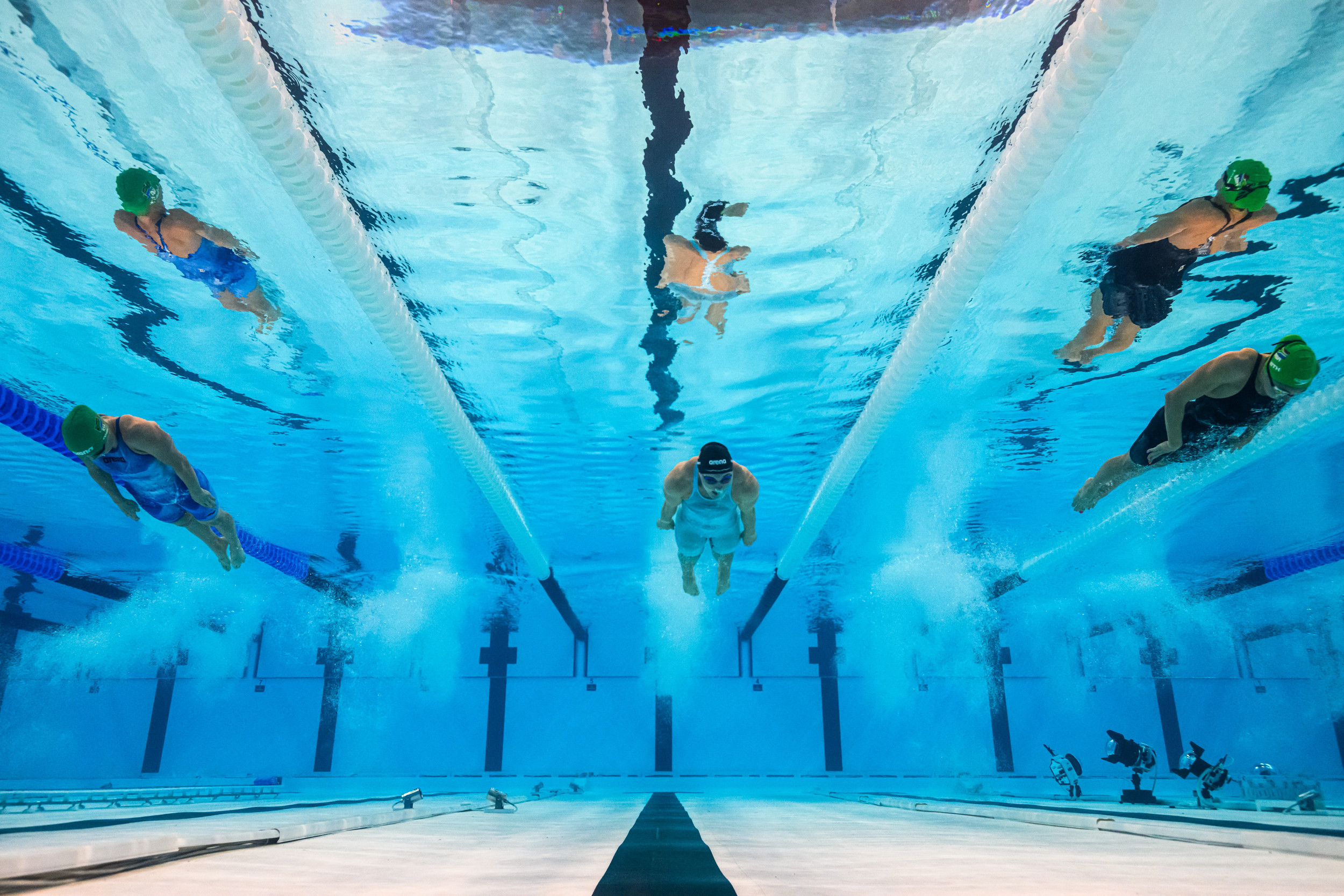Uncommon Knowledge
Newsweek is committed to challenging conventional wisdom and finding connections in the search for common ground.

The swimming events are often crowd pleasers at any Olympics for many reasons, as the sport offers a lot of medals and—usually—world records. However, at Paris 2024, swimmers have struggled to register record times.
According to The Associated Press, in the first four days of competition at La Defense Arena, not a single world record had been set, with some suggesting the pool’s slightly shallower depth is to blame as it can cause more waves and turbulence.
The outlet reported that while a 3-meter (9.8 feet) pool is considered the optimal depth and the World Aquatics has mandated a minimum depth of 2.5 meters (8.2 feet) for swimming and water polo events, Paris’ facility was approved under previous guidelines.
When the Olympics were awarded to Paris, the facility allowed for a depth of 2.2 meters (7.2 feet).
Ken Ono, a data specialist working with the U.S. swim team, told Yahoo News: “The pool is fast compared to your neighborhood swim club. However, it is not ideal for record setting. The shallow depth is a primary reason.”
However, American swimming star Katie Ledecky shrugged off concerns telling the AP: “We’re all fast swimmers. We make the pool as fast as we want it to be. I’m not really thinking about it.”
Meanwhile, swimmer Katie Grimes, who claimed a silver medal in the 400-meter individual medley, told the AP that everyone is competing under the same conditions. “Regardless if it’s a slow pool or not, it’s not going to affect just one person. It’s affecting everybody,” Grimes said.
Newsweek has reached out to the Paris 2024 Olympics and the World Aquatics via email for comment.
This comes after six world records were broken at the 2020 Tokyo Olympics. USA’s Caeleb Dressel and South Africa’s Tatjana Schoenmaker were the only two swimmers to have broken an individual world record. According to Swim Swam, Dressel lowered his own record by 0.05 seconds to win the men’s 100 fly while Schoenmaker broke Rikke Moller Pedersen’s 8-year-old record in the 200 breast, setting a new benchmark of 2:18.95.
Historically, at least one swimming world record has been set at every post-World War II Olympics. The 2008 Beijing Games saw 23 world records and recent Olympics have still seen multiple world records: nine in London 2012, eight in Rio 2016, and six in the pandemic-delayed Tokyo Games.
Amid this year’s games the slower times have been noticeable. Canada’s Summer McIntosh, for instance, was over three seconds slower in the 400 IM than her world-record time at her country’s Olympic trials. Similarly, Romania’s David Popovici’s gold in the men’s 200 freestyle was the slowest winning time since the 2000 Sydney Games. Italy’s Nicolò Martinenghi’s gold in the 100 breaststroke wouldn’t have medaled in the last two Summer Games.
However, despite the slow times, Torin Koos, a spokesman for World Aquatics, pointed out to the AP that five Olympic records were set through the first 15 events.
According to the Olympics website, at Paris 2024, there are 35 events with several different categories—including freestyle, backstroke, butterfly, breaststroke, medleys and relays. Out of those categories seven Olympic swimming records have been broken so far.
Meanwhile, at the 2020 Olympics in Tokyo there were 20 new Olympic swimming records set.
Despite the times, the crowd in Paris has certainly pushed the swimmers as Australian sprinter Kyle Chalmers told the AP, “It’s about getting your hand on the wall first and winning the race. The times are never really all that remembered.”
Newsweek is committed to challenging conventional wisdom and finding connections in the search for common ground.
Newsweek is committed to challenging conventional wisdom and finding connections in the search for common ground.